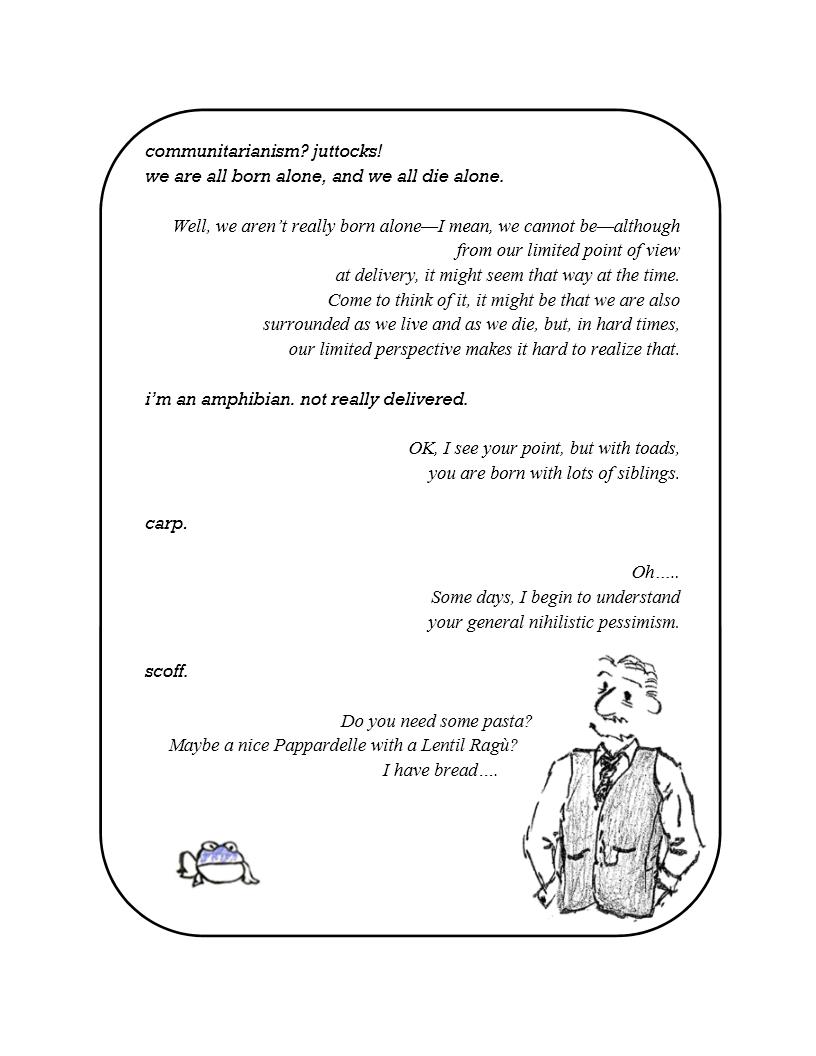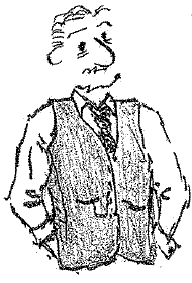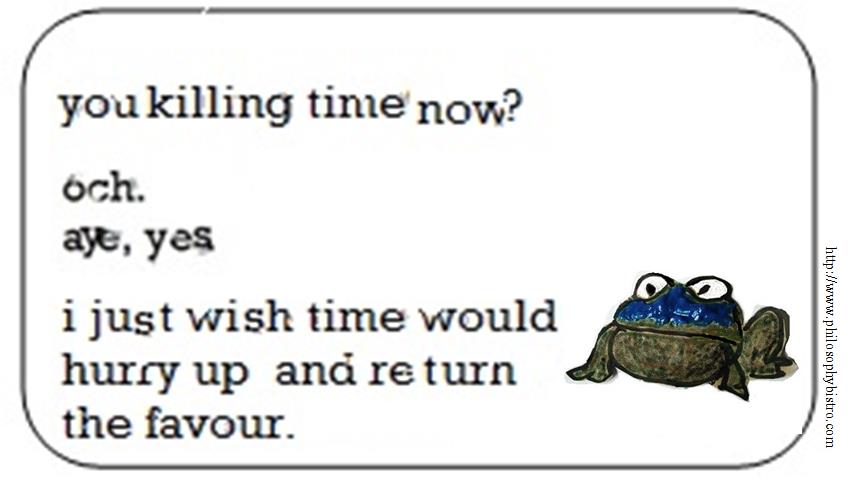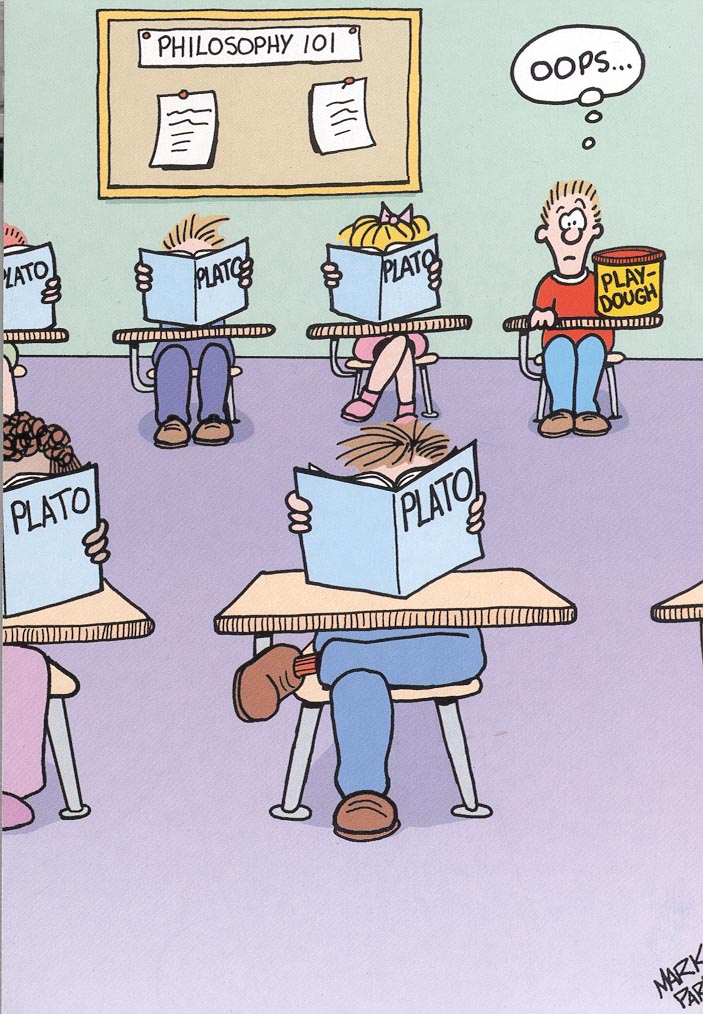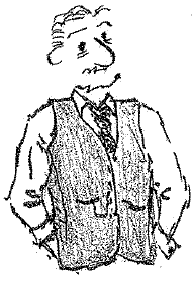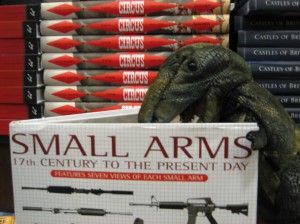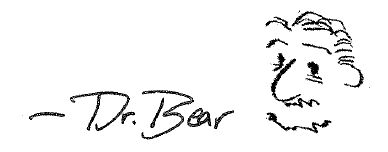My Dear Ben,
Yes, Modern Individualism has its problems. It has made us more self-centered. It has made us less connected to others, maybe even colder towards others. It is possible that, as your question suggested this focus upon ourselves has given us a “decreased threshold for discomfort, pain and suffering.”
It seems to me the implied part of your question is to move away from our “increased individualism,” and towards an increased emphasis upon community. Well, community is good, more or less, but it can have its flaws as well.
The individual culture we have produced…
Wait a minute: are we actually individualist? We are such a mass consumer culture marked by group trends and fads that we are constantly conforming to, so much pressure to be part of a group, are we really all that individualistic?
ahem.
Sorry, Wode Toad. You’re right; I’m getting off track.
The individual culture we have produced has its flaws, and might have made us more self-centered, perhaps even selfish, but individualism has its strengths as well, especially for those of us who are individuals.
By this, of course, I mean all of us.
There is a core to each of us, something that is our self, which lies outside of the embrace of the community, even outside of the formative powers of our social environment.
If community really does shape us, then why is it that so many of us fit so abysmally into those communities?
I’m thinking of a young man I know who was raised in the verdant fields of the American mid-west, part of an extended family, an active participant in his schools, member—an active member—of his community of faith. He grows up trying very hard to be a part of this community, and working to do what the community needs. He is committed to the values and goals of his community—family, God, soybeans, heaven—whatever it is that Midwesterners believe in.
Yet he still might, and did, grown up to be someone the community has at every step actively worked towards preventing him from becoming. That core within him that can’t quite be explained by genes or environment finds itself attracted to other men, and by the disconnect, the psychic pain, he is aware of two things: the power that the community exerts over him, and the resistance of his own individuality that can not conform to the demands of that power.
So, what am I to say to him?
Should I extol the virtues of community and preach the moral bankruptcy of modern individualism?
What should I say to the High School student whose teachers discipline her when she colors her hair or whose classmates taunt her when she wears black finger-less gloves? Should I talk to her about the nurturing power of community?
What should I say to the 13-year-old Afghan girl whose family sells her to be the wife of a 70-year-old man from the neighboring village? Should I talk to her about how our identity is derived from the community that raised us? Should I talk to her about ubuntu, and how “I am because we are?”
Given the choice between Sartre’s and De Beauvoir’s individualism on the one hand and MacIntyre’s and Hauerwas’ (or Pope Benedict’s) communitarianism on the other, which should I recommend to any of these human beings? Philosophies that say choose who you want to be, but accept the full responsibility for your choices, or philosophies that say find your value within the community?
I would most certainly say read Sartre. Read Nietzsche if it gives you strength. Read Thoreau. Read Virginia Woolf and find a room of your own. Read Carol Gilligan or bell hooks and find a voice of your own.
I would say that Socrates should have left Athens before his noble community killed him, even if that meant facing the world alone.

